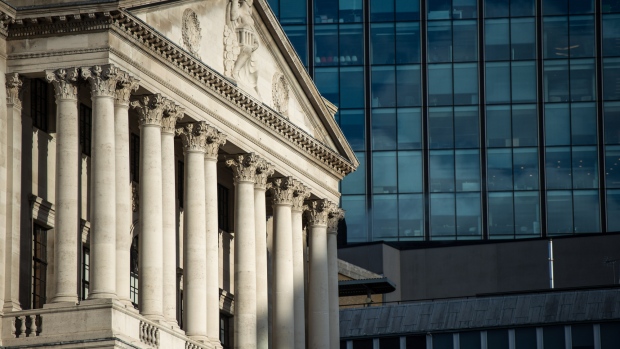Jun 20, 2019
BOE notes rising no-deal Brexit risk as rate kept unchanged
, Bloomberg News

The Bank of England said the perceived risk of crashing out of the European Union without a deal had risen as they unanimously voted to keep policy unchanged.
While officials, led by Governor Mark Carney, said they still see the need for interest-rate hikes in coming years if their forecasts bear out, they also acknowledged that investors are taking a different view than the bank's assumption of a smooth Brexit.
That has pushed down the pound and market expectations for future interest rates, the Monetary Policy Committee said in the minutes of its June meeting.
The market moves “highlighted the ongoing tension between the MPC's forecast conditioning assumption of a smooth Brexit and the assumptions about alternative Brexit scenarios that were priced into the financial market variables,” the minutes said.
The BOE last month indicated that more rate hikes would be needed over the next few years to keep inflation under control, and said the market curve doesn't reflect that. Since then investors have increased bets in the other direction, with the market showing a greater likelihood of a cut rather than an increase as the next move.
That assumption about an orderly departure from the EU looks more fragile now. All the remaining candidates in the race to succeed Prime Minister Theresa May have refused to exclude the prospect of leaving without a new arrangement in place.
“Domestically, the perceived likelihood of no-deal Brexit has risen,” the bank said in a summary of monetary policy.
The panel voted 9-0 to hold the key rate at 0.75 per cent. All 63 economists in a Bloomberg survey correctly predicted Thursday's decision. They cut their prediction for second-quarter growth to stagnation after a previous estimate of 0.2 per cent.
The BOE reiterated its guidance for limited and gradual rate hikes in the minutes, but also joined other major central banks in recognizing the weaker global outlook. European Central Bank President Mario Draghi this week pledged new stimulus if the outlook doesn’t improve. The U.S. Federal Reserve on Wednesday opened the door to a rate cut as soon as next month.
With Brexit now delayed until Oct. 31, the BOE said it doesn't expect investment to pick up before then. It said that downside risks have increased since May, and underlying growth has weakened slightly in the first half.